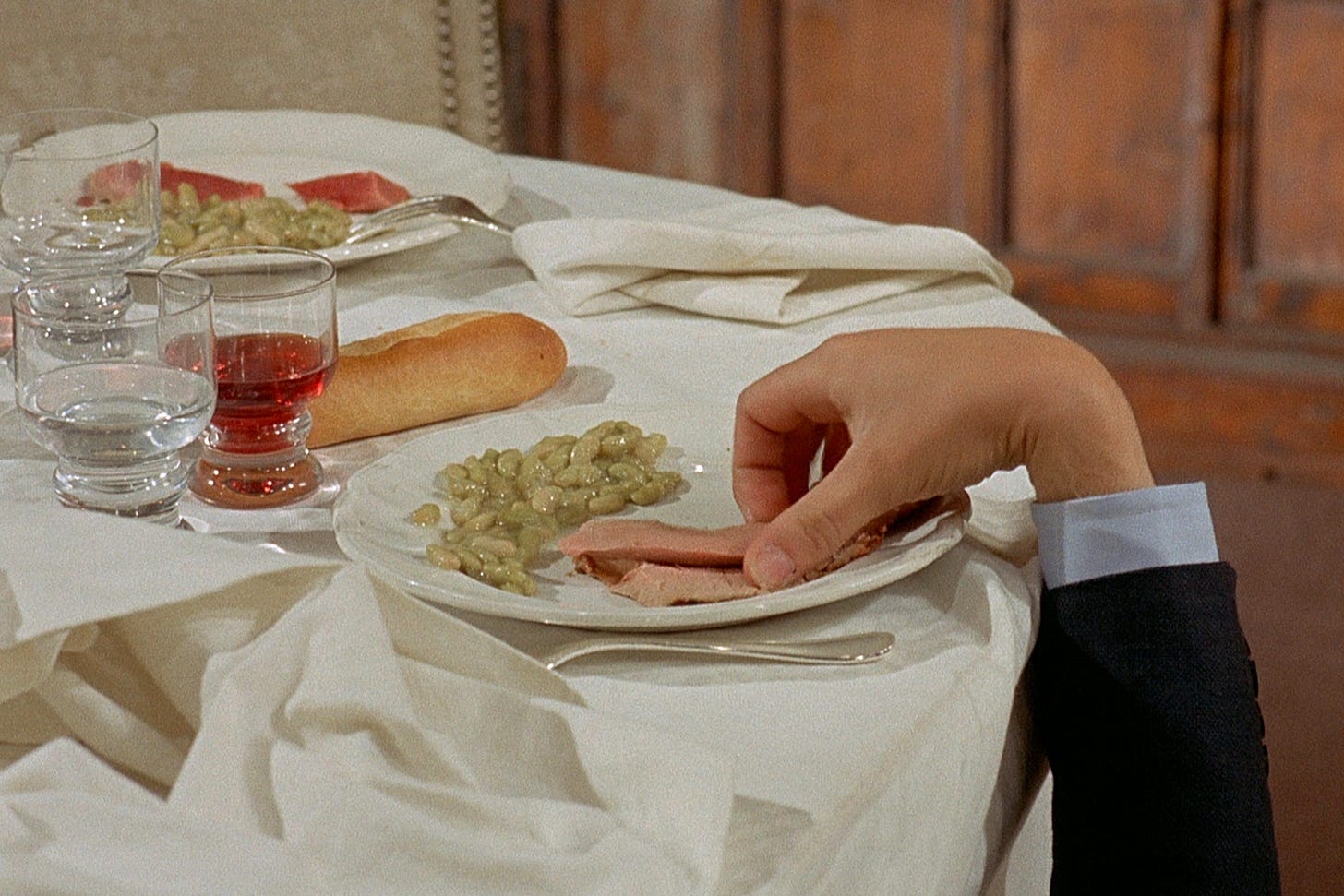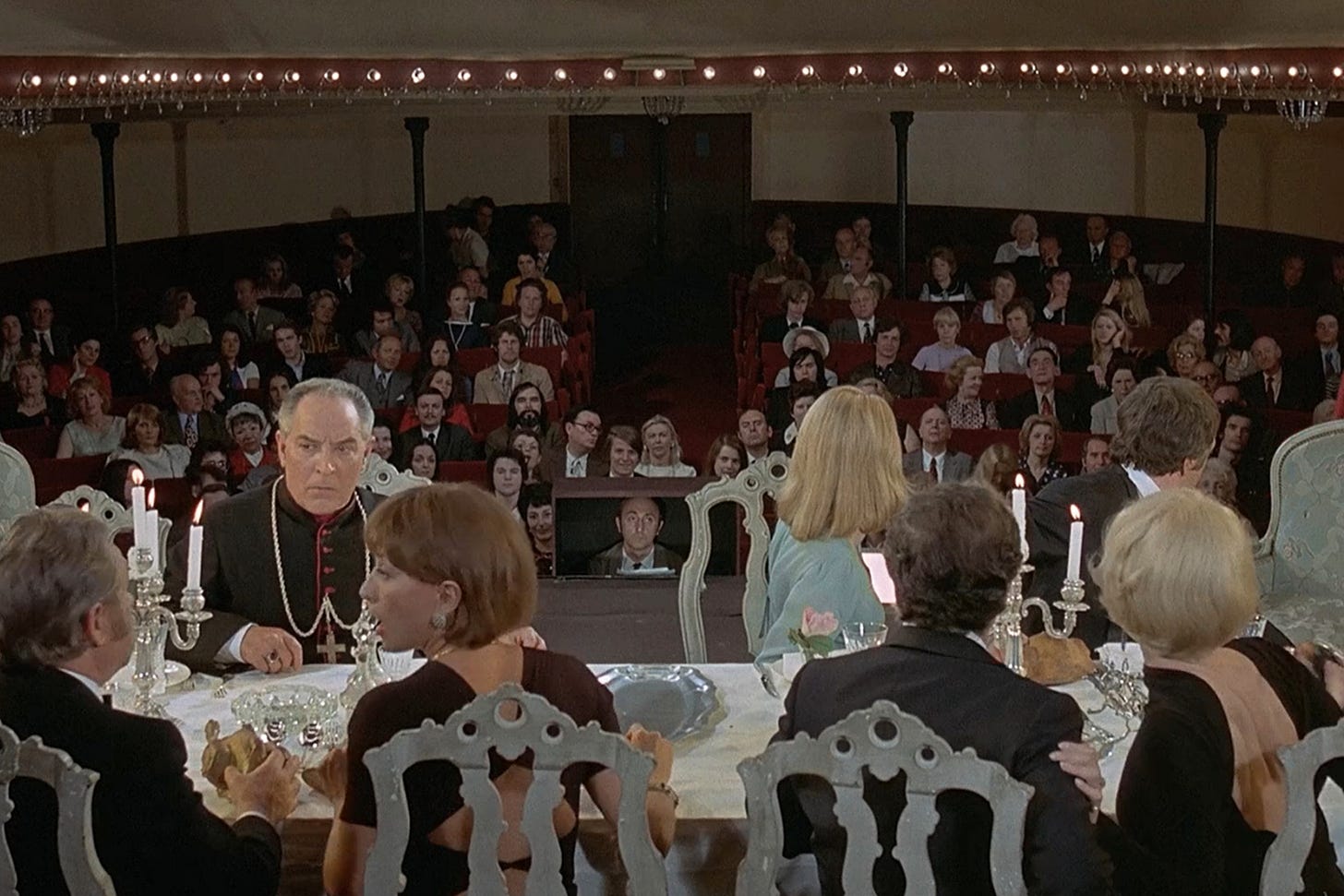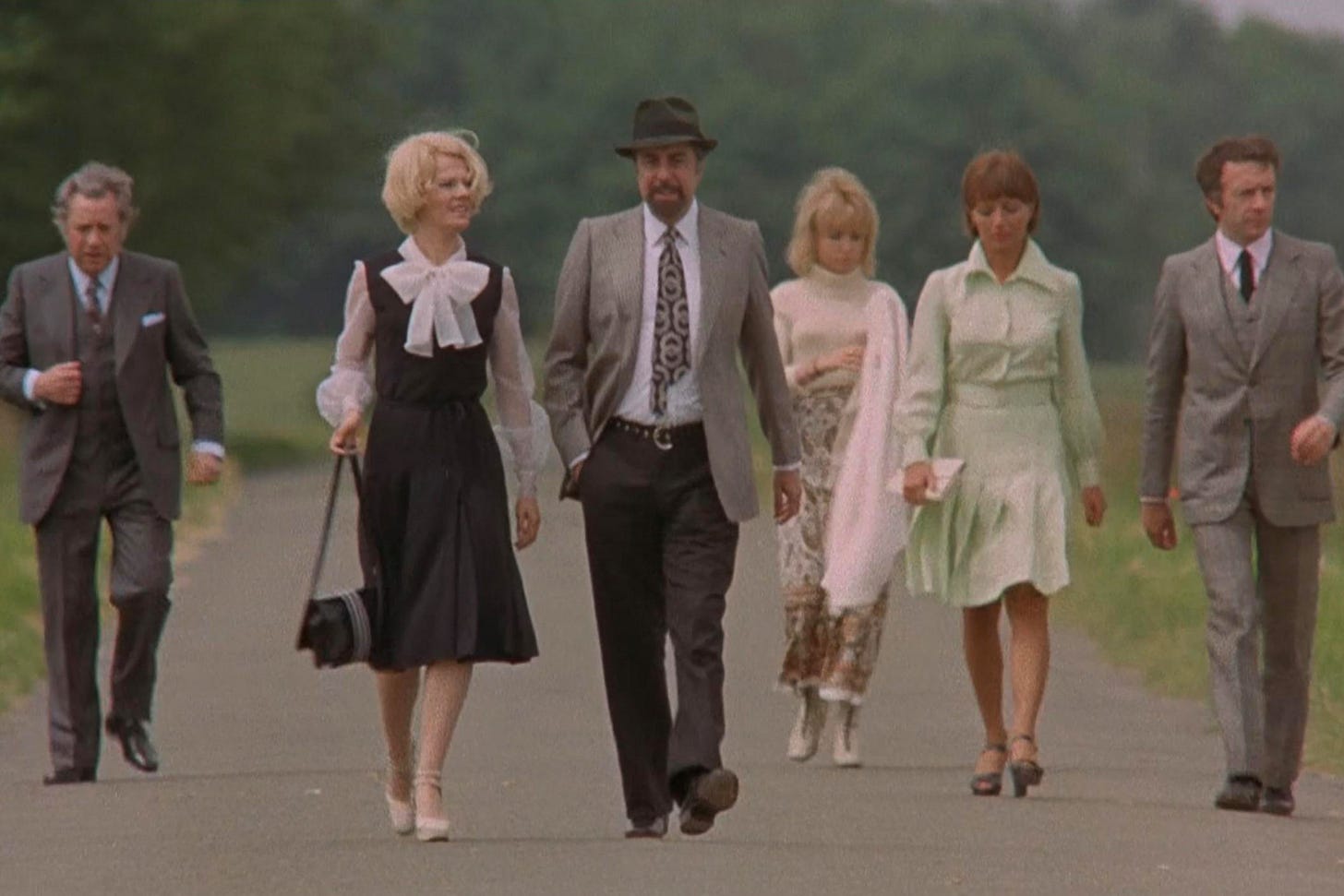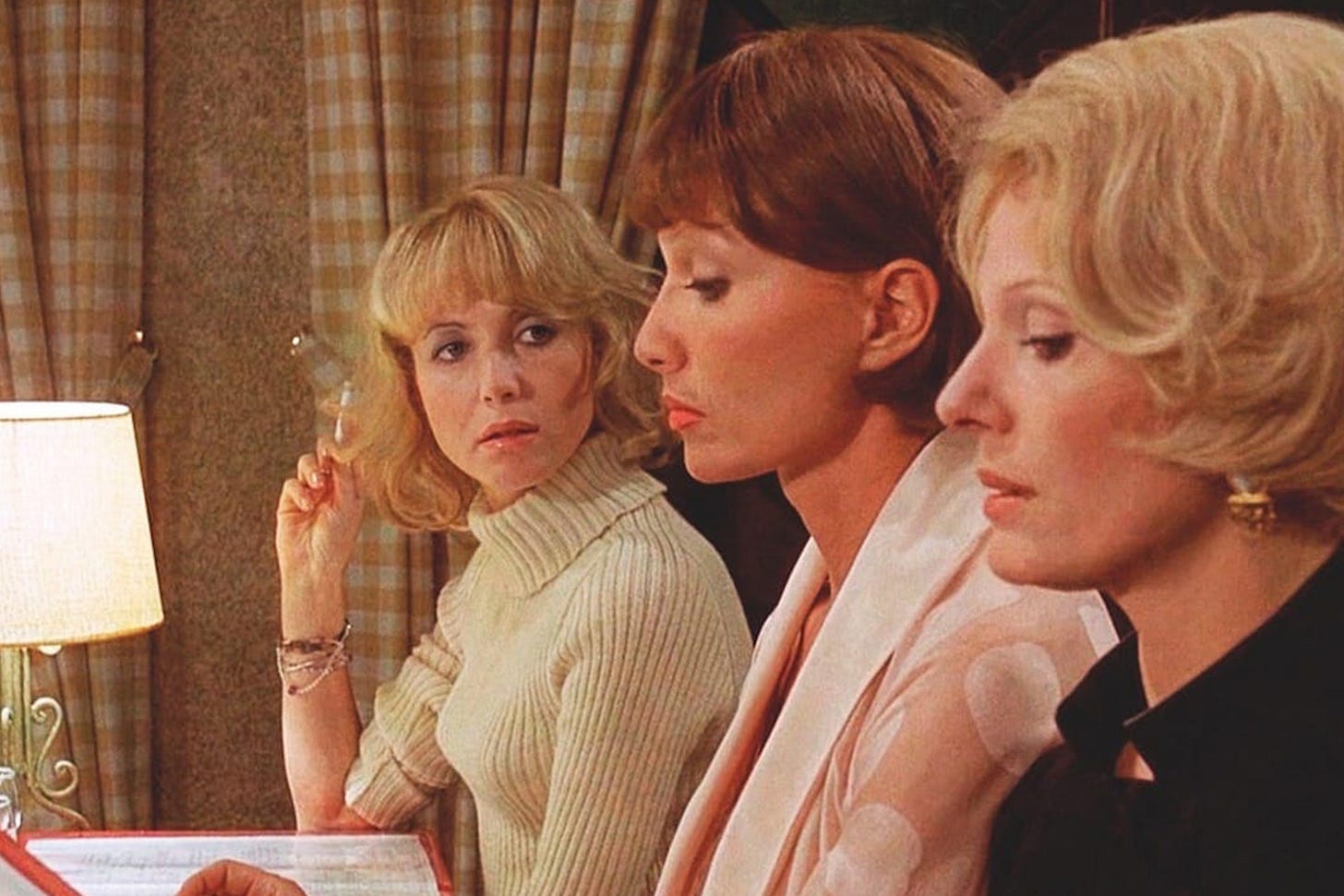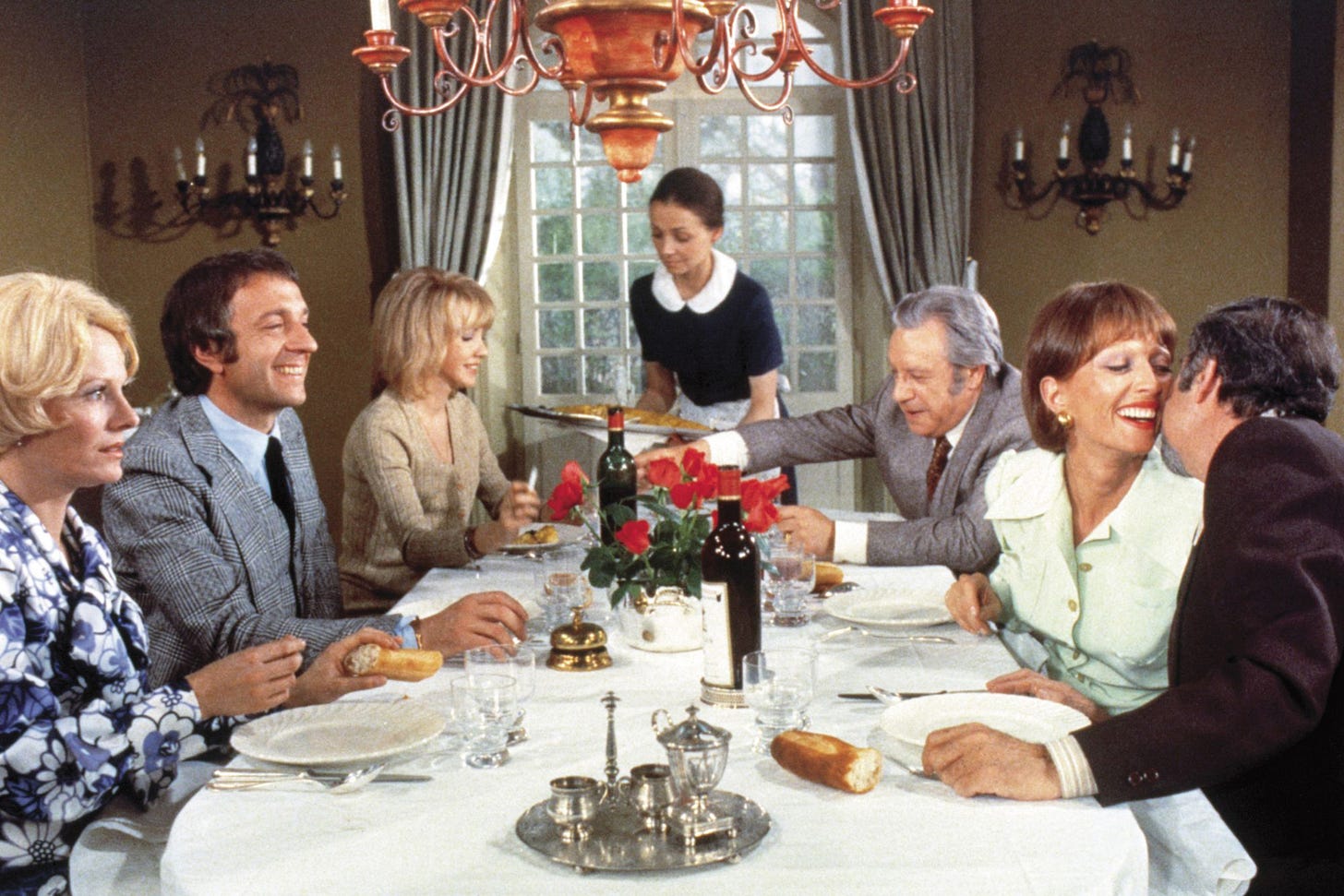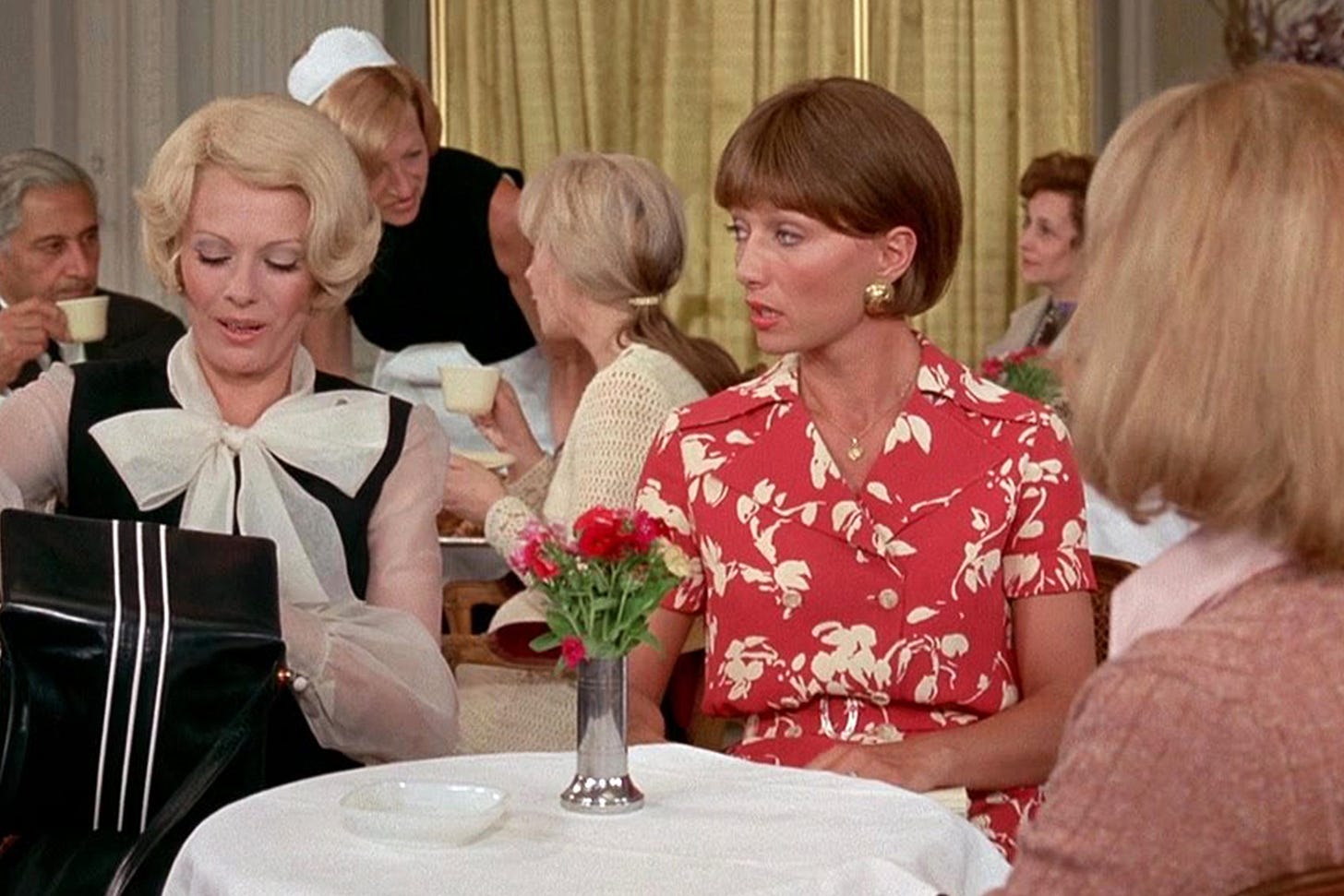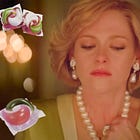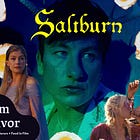The Perfect Dry Martini + The Discreet Charm of the Bourgeoisie
A meditation on appetite, class, and cocktails
The Discreet Charm of the Bourgeoisie (1972) Film Flavor Review
Film Review: ★★★½
Food Review: ★★★½
More of a series of vignettes featuring familiar characters than a typical narrative feature film, The Discreet Charm of the Bourgeoisie follows a group of six upperclass friends who try and meet for dinner, then lunch, then tea, then dinner, and yet never seem to finally eat. Whether they got their dates mixed up, find a dead body in the restaurant they’ve sat down in, or are interrupted by dozens of military men arriving at their door, our characters are doomed only to drink.
Directed by Luis Buñuel, a director who famously collaborated with Salvador Dali, the film is often labeled as surrealist satire.
Ask anyone about what they dreamt last night, and they’ll most likely tell you a series of scenes and vignettes — some connected, most not — in great realistic detail.
As the Guardian points out, films are often labeled “dreamlike” when their visuals are “hallucinogenic.” Films like David Lynch’s Mulholland Drive, Frederico Fellini’s 8 1/2, or Darren Aronofsky’s Requiem for a Dream come to mind.
By contrast, in The Discreet Charm of the Bourgeoisie, Luis Buñuel creates visuals that often feel staunchly realistic. Through writing, Buñuel simply creates scenes that start out making sense and then end with wildly unrealistic actions. In this way, The Discreet Charm of the Bourgeoisie is one of the most oneiric films ever made.
The Barbie Dream Effect
I first watched this film when I was a teenager, and I was struck by how much it reminded me of playing with Barbie dolls. My sister, friends and I were the type of kids who created elaborate dramatic scenes for our Barbies to act out in, and the improvisational, realtime style of our story-making inevitably gave way to scenes ending on bizarre notes.
In The Discreet Charm, the way in which the camera almost never gets too close to the characters, and the liberal use of painted sets and other theatrical motifs, creates the same improvisational, removed feel that playing with dolls or a dream might conjure.
It is only through this dreamlike lens that a viewer can appreciate this film in its entirety. When viewed in harmony with its surrealist rhythm (not fighting it with an overabundance of logic) it becomes evident that Buñuel is critiquing appetite. We, humans, are insatiable.
Disclaimer: Some might consider the video above a light spoiler, but really, if you haven’t seen the film, this isn’t going to ruin much for you.
Food is often shown as a character’s downfall. Whether drinking poison or grabbing a slice of ham when they’re supposed to be hiding from a gun, the characters of the Bourgeoisie are jonesing for their next meal, their next drink, their next sexual encounter, their next social engagement, to no end.
Do our main characters ever eat? Only a little. But boy, do they drink.
Menu Bashing
In the first scene, a group of two men and two women arrive at a home of another couple for a dinner party, only to find out there’s been a mix up and the couple was expecting them on another day. The group leaves and tries to eat at a nearby inn, when their plans are interrupted by a shocking discovery.
Before that, though, the party participates in their regular ritual of bashing every item on the menu. They couldn’t possibly try fish at a restaurant like this, they complain loudly for the staff to hear. This scene sets the tone for the type of people we’re dealing with: people who refuse to be inconvenienced in the slightest by anyone poorer than them.
The Perfect Dry Martini
The success of The Discreet Charm of the Bourgeoisie incidentally made Luis Buñuel the conclusive source on how to mix a martini for many a cinephile. Above, I’ve included a excerpt from the film in which a character explains how to make the perfect martini. Below, I’ve included a video of the director himself showing off his martini mixing skills.
Finally, I would be remiss if I didn’t include an excerpt of Luis Buñuel’s rules for making a dry martini, in his own words:
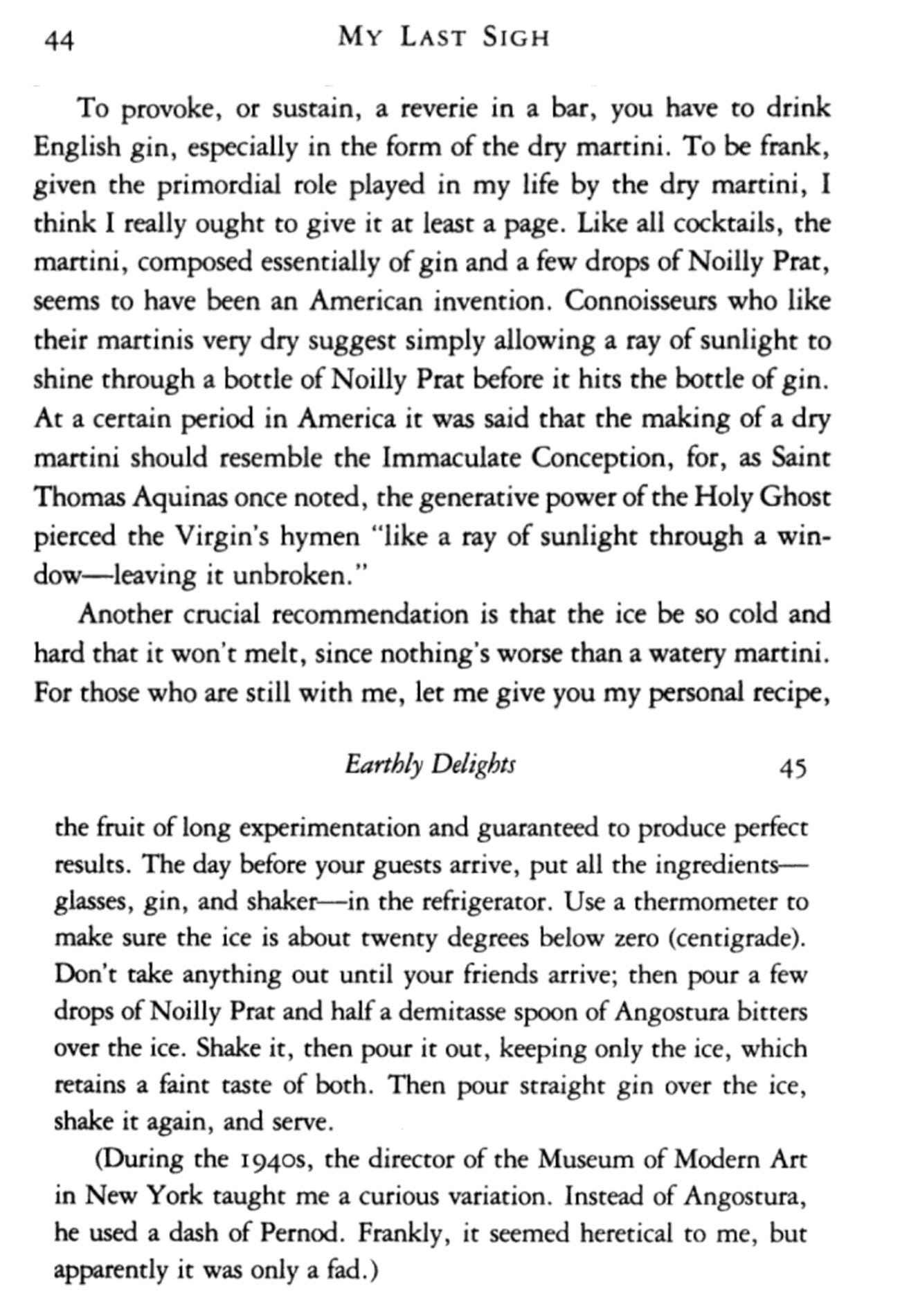
Is A Meal Really A Meal Without Soup?
Coffee, Tea, Milk with Poison, port, whiskey that tastes like “quasi-cola”… these are just a few of the beverages the Discreet gang goes on to consume throughout the film.
“I nearly didn’t make soup. Then I thought: Is a meal without soup really a meal?” — Alice, The Discreet Charm of the Bourgeoisie
In one of the film’s final scenes, the characters are excited to sit down and eat some soup one of them (Stéphane Audran’s Alice) has prepared.
When she asks, “Is a meal without soup really a meal?” it comes off as a line you’d think of in the shower as you’re ruminating on what you want to make for dinner; one of those lines you desperately want to write down but forget by the time you’ve toweled off. (The line especially stands out against the soup tureen motifs we see earlier in the film, associating acts of violence and other dream-like, bizarre activity with the liquid course.)
While this line strikes us epicures as poignant on its own, the line ultimate works to add to the dreamlike, rhythmic state that is lulling the hungry bourgeoisie to their demise.
Noted food-In-film lecturer Albert Sonnenfeld has an interesting quote about the film, telling the Chicago Tribune, “What you eat is certainly a symbolic revelation of where you stand on the social ladder.” Perhaps this is why the upper middle class is so hungry, so eager to eat.
At the risk of sounding like Carrie Bradshaw’s first film review, I can’t help but wonder if Buñuel withholds food from the troupe in the same way disturbed little kids capture bugs in jars and watch them squirm for a while before letting them free. Maybe this starvation is what Buñuel would like to see happen, or maybe it just goes to show just how precarious the capitalist class really is.
In Case You Missed It…
If you’ve made it this far in the review, here are some recent Film Flavor newsletters I think you might want to check out:
Un Dessert
First, a quick note about those gosh darn Golden Globes from last week: I think this is one award show in the film industry that still needs to find its footing. For those unaware, the previous organizing and voting committee of the Golden Globes was a seemingly random group of old rich white guys passing as serious journalists. After the Globes went off air for a year and were sold to Dick Clark Productions and Eldridge, a new, more diverse voting body of film critics and journalists was put in place, and here we are today.
That brings me to tonight’s Critics Choice Awards. While I’m just as lured into award show coverage as the next person, at the end of the day, any awards given out by critics are not a great predictor of awards to given out by entertainment industry professionals themselves. Are they fun to watch? Sometimes. But are these award shows great predictors of the Oscars? Not really.
And so, I must remind you Film Flavor will be hosting our very own 2024 96th Oscar’s Predictions Poll (with Bonus Food-centric Nominations) and YOU are invited to participate. Whether we know each other in real life or you found this newsletter via a casual scroll, I cannot WAIT to hear about your favorite films of the year, and who you think will win the Oscars! (There might even be… dare I say… prizes? 👀)
To join the official Film Flavor Oscar’s poll, coming out later this month, please stay subscribed or subscribe to the newsletter below!
Thank you so much for reading! If you’re interested in more Film Flavor, please consider subscribing and sharing this post with friends and foes via the buttons below!
Subscribe:
Share this post:
With Gratitude,


